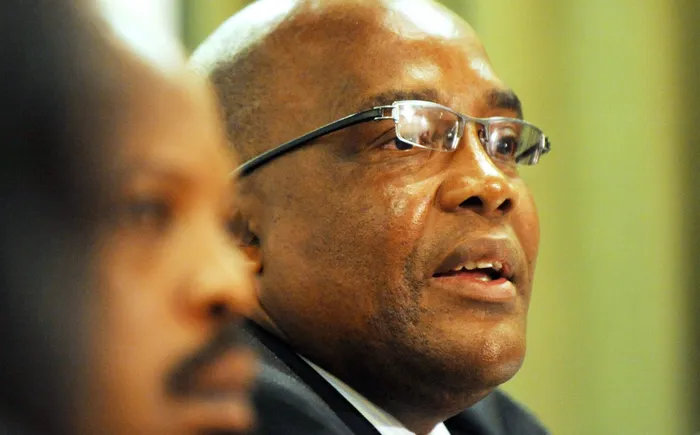Empty Promises or Pipedream? Criticism mounts against NHI

Solidarity slammed Health Minister Aaron Motsoaledi for his perceived indifference. Picture: Phill Magakoe/Independent Newspapers
AS South Africa ushers in 2025, the National Health Insurance (NHI) Act finds itself under intensifying scrutiny, with trade union Solidarity spearheading the opposition.
Their legal campaign, initiated in May 2024, seeks to halt the implementation of what they describe as an “unrealistic” and financially ruinous healthcare plan.
In a damning statement on Friday, Solidarity accused the government of exploiting taxpayer funds to market an unattainable vision of universal healthcare.
The union pointed to billboards nationwide, which they claimed mocked the financial struggles of South Africans while extolling the virtues of a scheme that many believe is doomed to fail.
“How does the government justify the costs incurred for giant billboards celebrating the upcoming NHI when it is struggling financially in almost every area?” questioned Theuns du Buisson, an economic researcher at the Solidarity Research Institute (SRI).
He further said that the government’s promotion of the NHI came as “unemployed doctors in the Eastern Cape protest and Groote Schuur Hospital in the Western Cape cuts internships to a fraction of what it offered three years ago”.
The financial feasibility of the NHI remains one of its most contentious aspects. Estimates from various interest groups peg the cost of the system between R660 billion and R1.3 trillion, figures that critics argue are insurmountable given South Africa’s current economic climate.
According to Du Buisson, the average personal income tax would need to rise by an eye-watering R37 000 per year to fund the initiative.
“This is not only outrageous. It is impossible,” Du Buisson said, lambasting Health Minister Aaron Motsoaledi for his perceived indifference.
Solidarity further warned the Government of National Unity (GNU) against adopting what it described as an “ANC culture”, where taxpayers were expected to bear the brunt of fiscal mismanagement. “Millions have already been wasted on NHI preparations,” Du Buisson claimed, “most of which was spent on a plan that remains wholly unworkable.”
Despite these criticisms, proponents of the NHI argue that the initiative aims to address South Africa’s glaring healthcare inequalities. President Cyril Ramaphosa, who signed the NHI Bill into law on May 15, 2024, hailed it as a transformative step toward ensuring healthcare for all South Africans.
Currently, only 17% of the population has access to private healthcare services, a disparity the NHI seeks to rectify.
However, critics counter that South Africa’s public healthcare infrastructure is ill-equipped for such an overhaul. Reports by the Health Systems Trust highlight persistent issues, including poor staff attitudes, extended waiting times, and frequent drug shortages. These systemic problems, they argue, are a harbinger of what awaits under the NHI.
The Act’s provisions to limit private medical schemes to “complementary or top-up cover” have also sparked fears of declining healthcare standards. Discovery, one of South Africa’s largest health insurers, expressed concerns that these restrictions could “seriously curtail the healthcare people expect and demand”.
The NHI’s legal and economic challenges are formidable. Critics question how the government plans to sustain such an ambitious programme without alienating taxpayers or driving away essential medical professionals.
“The funding of private hospitals and the remuneration of healthcare professionals will need to be carefully managed,” noted legal experts at Cliffe Dekker Hofmeyr, emphasising the risk of a mass exodus of skilled healthcare workers.
Even as the government insists that the NHI will distribute patients more evenly between public and private sectors, skeptics see little evidence that the plan will ease the human resource burden on an already overstretched system.
The NHI represents one of the most audacious social reforms in South Africa’s democratic history. Yet, as its critics grow louder and legal battles loom, its future hangs in the balance.
Will it be the beacon of universal healthcare its proponents envision, or will it crumble under the weight of its ambition and financial impracticality?
For now, the promises emblazoned on South Africa’s highways remain just that: promises. Only time will tell whether the NHI can overcome its mounting obstacles to deliver on its pledge of “healthcare for all”.